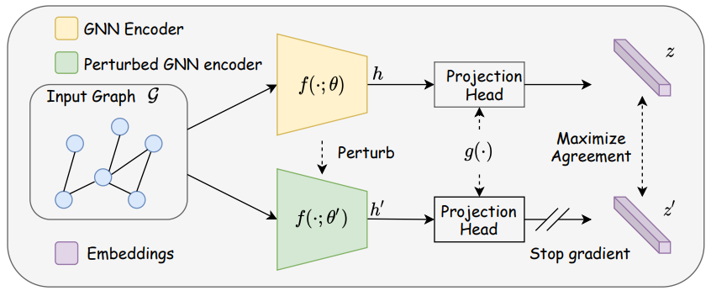SimGRACE: A Simple Framework for Graph Contrastive Learning without Data Augmentation
Graph contrastive learning (GCL) has emerged as a dominant technique for graph representation learning which maximizes the mutual information between paired graph augmentations that share the same semantics. Unfortunately, it is difficult to preserve semantics well during augmentations in view of the diverse nature of graph data. Currently, data augmentations in GCL that are designed to preserve semantics broadly fall into three unsatisfactory ways. First, the augmentations can be manually picked per dataset by trial-and-errors. Second, the augmentations can be selected via cumbersome search. Third, the augmentations can be obtained by introducing expensive domain-specific knowledge as guidance. All of these limit the efficiency and more general applicability of existing GCL methods. To circumvent these crucial issues, we propose a \underline{Sim}ple framework for \underline{GRA}ph \underline{C}ontrastive l\underline{E}arning, \textbf{SimGRACE} for brevity, which does not require data augmentations. Specifically, we take original graph as input and GNN model with its perturbed version as two encoders to obtain two correlated views for contrast. SimGRACE is inspired by the observation that graph data can preserve their semantics well during encoder perturbations while not requiring manual trial-and-errors, cumbersome search or expensive domain knowledge for augmentations selection. Also, we explain why SimGRACE can succeed. Furthermore, we devise adversarial training scheme, dubbed \textbf{AT-SimGRACE}, to enhance the robustness of graph contrastive learning and theoretically explain the reasons. Albeit simple, we show that SimGRACE can yield competitive or better performance compared with state-of-the-art methods in terms of generalizability, transferability and robustness, while enjoying unprecedented degree of flexibility and efficiency.
PDF Abstract




